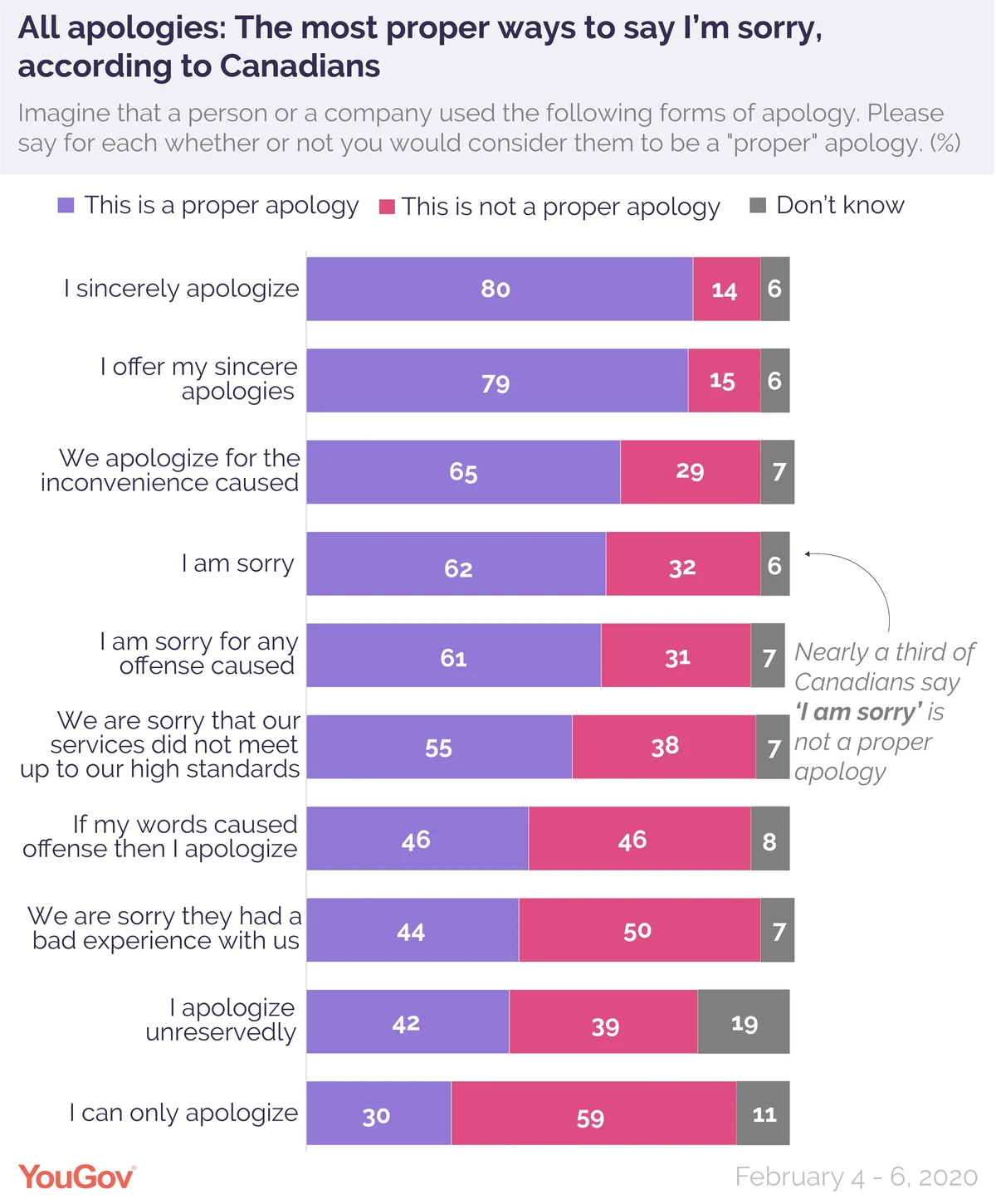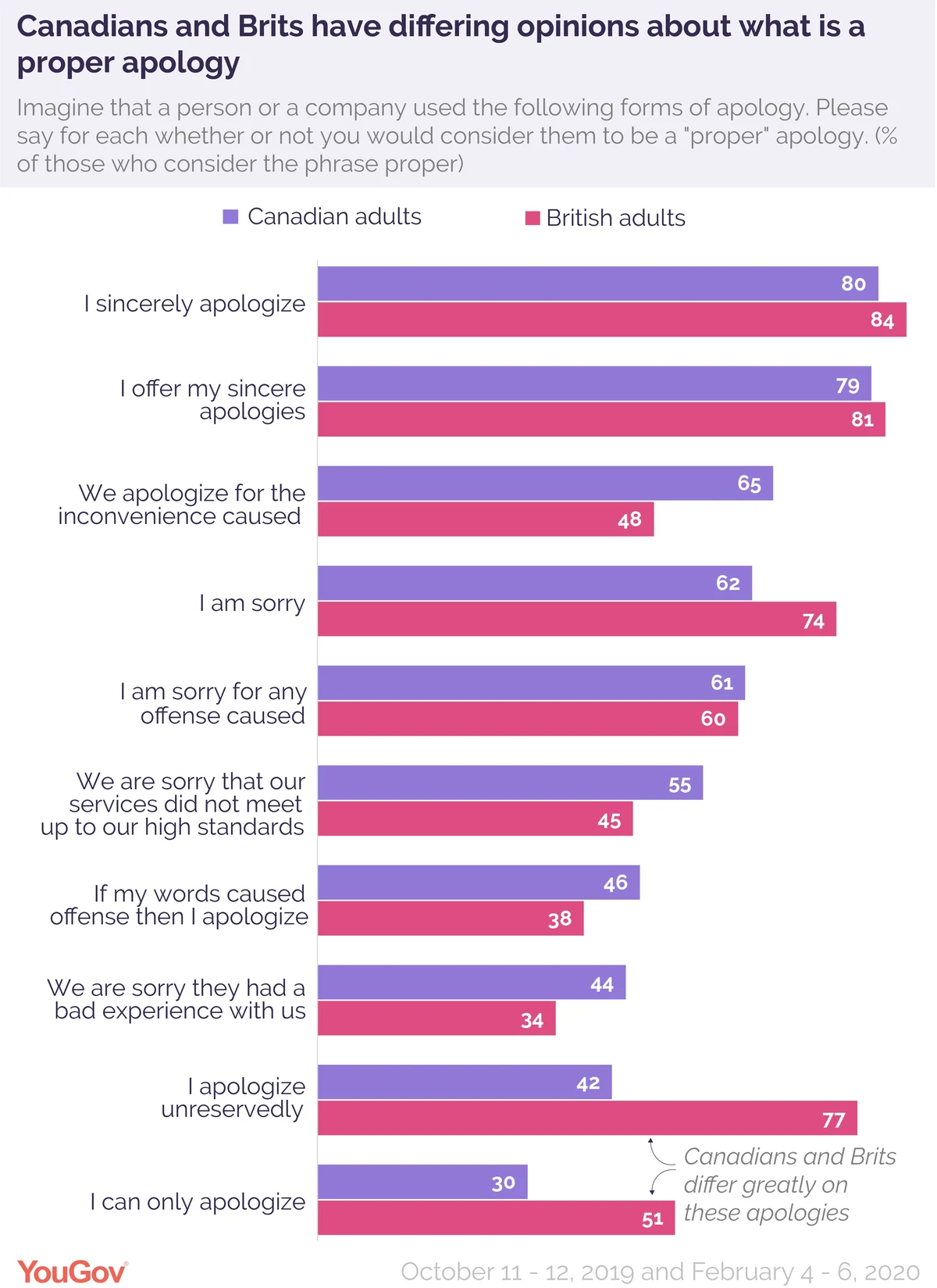Sometimes saying “I am sorry” just doesn’t cut it.
Nearly a third of Canadians say the phrase is not a proper apology, according to new YouGov data that sheds some light on what are — and aren’t — good ways to show contrition.
Whether Canadians like it or not, many people all over the world hold the stereotype of the apologetic Canuck, one who is quick to offer up a quick “sorry,” sometimes in place of a “pardon me,” “thank you” or “excuse me.”
That stereotype is strengthened by the country’s politics and laws.
Since taking office in 2015, Prime Minister Justin Trudeau has issued no fewer than seven formal apologies for historical wrongdoings in Canada, ranging from state-sanctioned discrimination against the LGBTQ community to denying South Asian imigrants entry into the country in 1913.
Due to habitual apologies, Ontario, Canada’s most populated province, even has a ‘sorry law’ on the books — the Apology Act — that states that an apology generally doesn’t imply fault in the eyes of the court.
When it really counts, what’s the best way to atone after a wrongdoing? For one, if you want to make it sincere, say so. Four out of five (80%) Canadians believe “I sincerely apologize” is a proper apology, followed closely by “I offer my sincere apologies” (79%).

It seems businesses wanting to show penitence ought to tread carefully: 65 percent of Canadians believe “We apologize for the inconvenience caused” is a proper apology, while just over half (55%) say so of “We are sorry that our services did not meet up to our high standards.” Worse is “We are sorry that they had a bad experience with us,” which fewer than half (44%) of Canadians say is the right way to say sorry.
A simple “I am sorry” is enough to satisfy 62 percent of Canadians, but roughly a third (32%) say it’s not.
Did you say something offensive? Nearly three out of five (61%) say “I am sorry for any offense caused” is good enough, but only 46 percent say so of “if my words caused offense then I apologize.”

When showing remorse, it might not be a good idea to say “I apologize unreservedly,” as only 42 percent say that’s a good apology. Even worse is the non-apology “I can only apologize,” which less than a third (30%) of Canadians say is a proper apology. YouGov conducted similar research in the UK in 2019 and those two phrases are much more accepted by Britons than Canadians.
Methodology: Total sample size was 1,005 Canadian adults. Fieldwork was undertaken between February 4 - 6, 2020. The survey was carried out online. The figures have been weighted and are representative of all Canada adults.
Image: Getty








